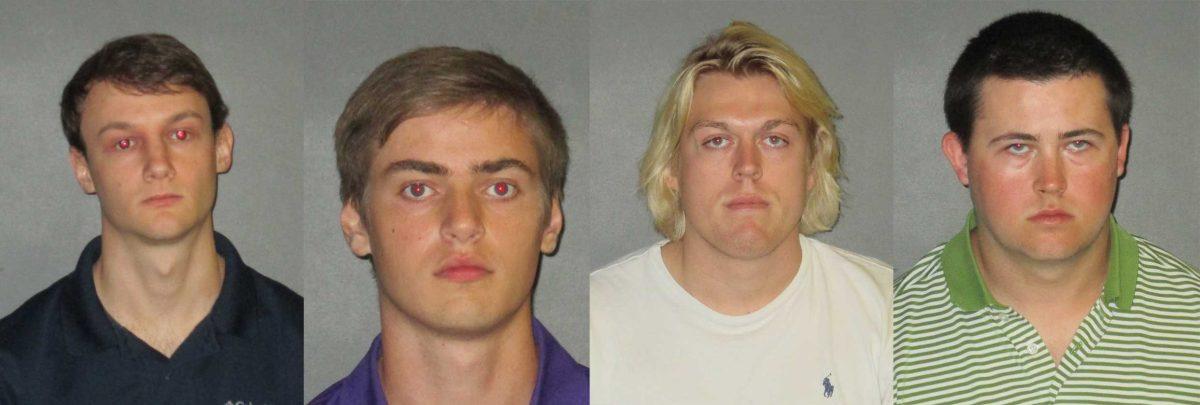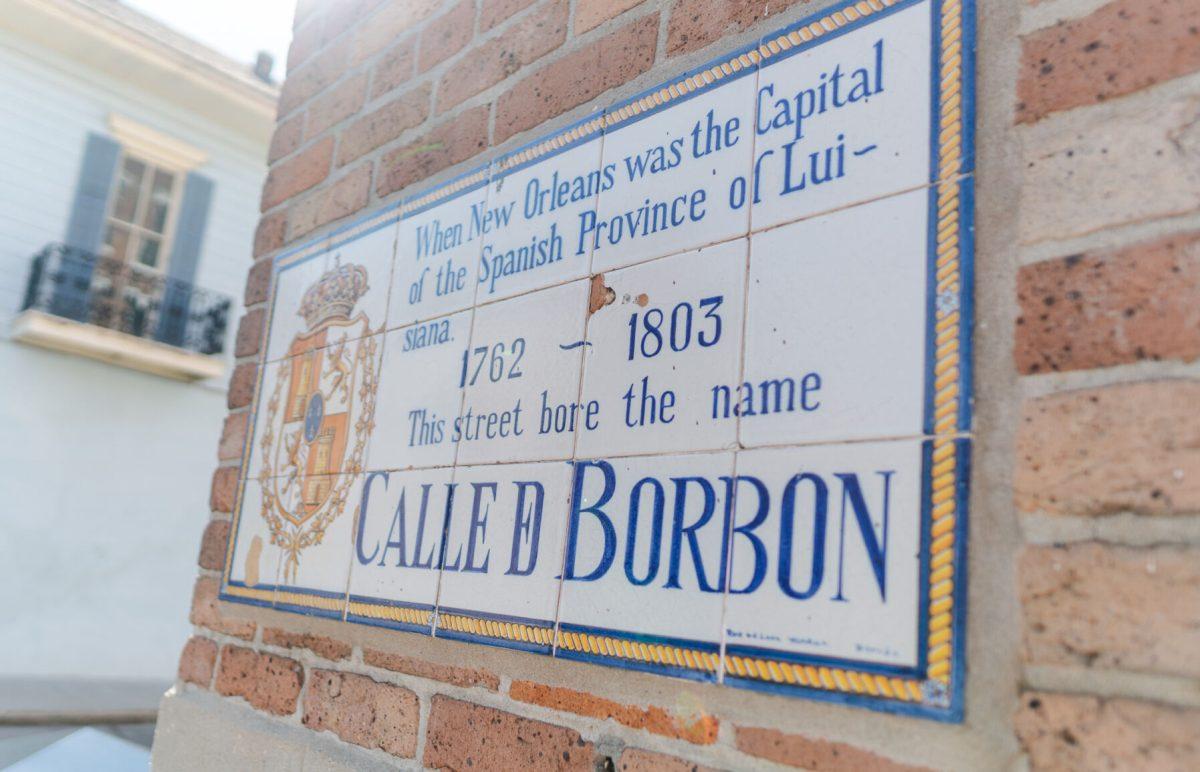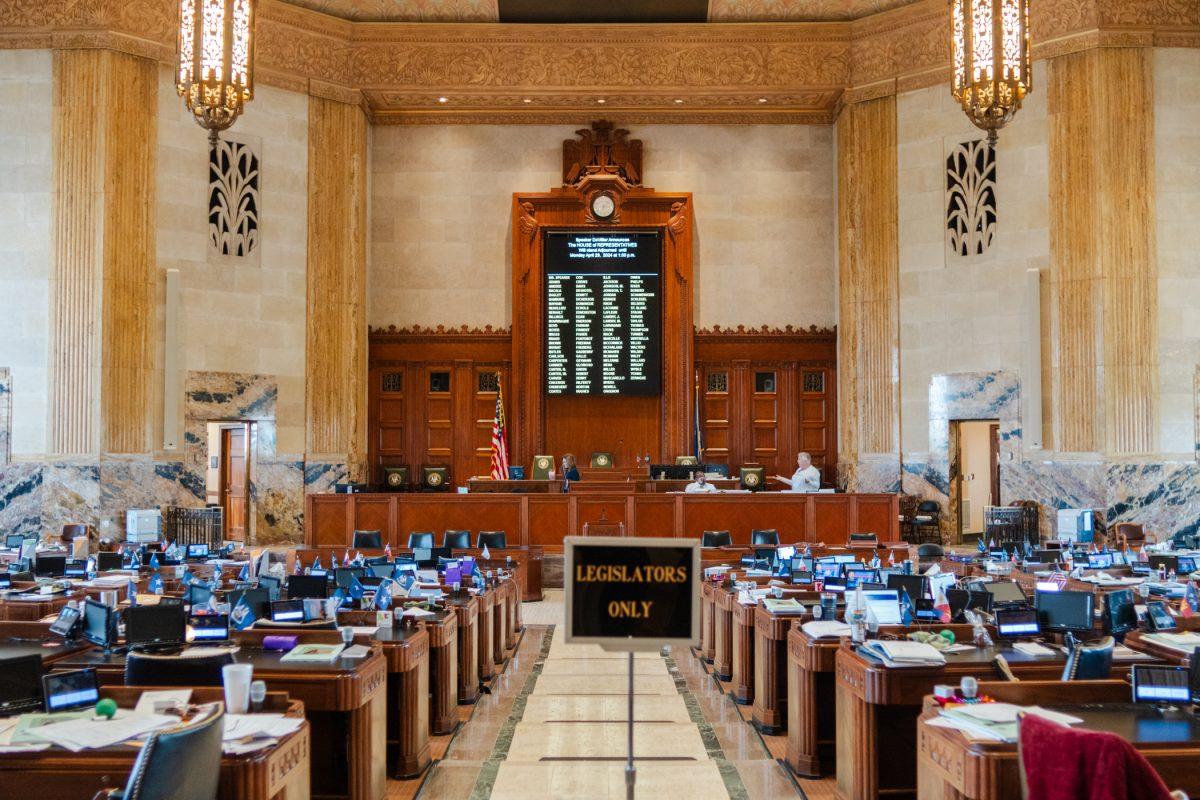Two of the four former University students facing hazing charges for the death of Maxwell Gruver one year ago, pleaded no contest Thursday at the 19th Judicial District Courthouse, while a third defendant argued against new evidence of his behavior.
Ryan Isto and Sean-Paul Gott pleaded no contest, while Matthew Naquin’s legal team argued against new evidence in his trial. Naquin faces a felony charge of negligent homicide in addition to a misdemeanor hazing charge. Naquin’s lawyer, John McLindon, attempted to prevent the introduction of evidence regarding Naquin’s behavior before the incident that led to Gruver’s death.
A no contest plea is when the defendant neither admits nor denies guilt but can still be sentenced as if he pleaded guilty in criminal court. This plea also ensures Isto and Gott cannot be found guilty in a civil suit based on the ruling in the criminal trial.
Judge Beau Higginbotham said a no contest plea and a guilty plea are equal in his court.
East Baton Rouge Parish Assistant District Attorney Morgan Johnson said the evidence should be introduced because it shows Naquin’s behavior was similar to the actions that led to Gruver’s death.
Freshman Phi Delta Theta pledge Max Gruver was “targeted” during a hazing event called “Bible Study” at the fraternity house. He was forced to take 10-12 “pulls” of 190-proof liquor, Diesel, and had a .495 blood alcohol level when he died on Sept. 14, 2017.
Hazing penalties result in 10-30 days in jail and a fine of up to $100, while those convicted of negligent homicide can face five years in jail.
Patrick Forde, who was not present on Thursday and also faces a hazing charge, agreed to cooperate with the state and to testify at all future trials. He does not yet have a trial date.
Gruver’s parents, Stephen and Rae Ann Gruver, were present in the courtroom Thursday to provide a victim’s statement.
“This has been a very long and trying journey,” Rae Ann said in the statement. “We hope those involved cooperate so we can learn what happened and move on.”
Rae Ann Gruver said Max called her everyday when he was going through fraternity recruitment.
“He was very excited when he chose Phi Delt and they chose him,” Rae Ann said in the statement. “Because of hazing, Max was taken too soon. He was a freshman who was taken 29 days into college.”
The prosecution brought witness testimonies to trial featuring evidence of Phi Delta Theta events prior to “Bible Study.”. Johnson played the testimonies of three former Phi Delta Theta pledges.
Some of the witness testimonies featured inconsistencies. The State is obligated to disclose these under Brady v. Maryland, should they choose to use them in the trial. Naquin’s lawyer disagreed with the playing of the recordings.
“I think I would recognize an inconsistency more than you would, Judge,” McLindon said.
The judge partly granted Johnson’s request to present evidence of Naquin’s behavior in the weeks before Gruver’s death.
The prosecution also requested Naquin’s phone passcode, but Naquin refused. Gott agreed to give his phone passcode to the state after previously refusing to do so.
East Baton Rouge investigator for the district attorney’s office Jeff Malone interviewed several former active members and pledges of Phi Delta Theta. He has been investigating other incidents where Naquin’s behavior was questioned. Malone played recorded testimonies from three pledges in court on Thursday.
One pledge told Malone that Naquin yelled at a pledge while watching the Mayweather v. McGregor fight at the fraternity house on Aug. 26, 2017. The pledge who was yelled at was upset and reported Naquin to other active members. He told investigators he remembers playing beer pong with Naquin that night.
Another pledge said around 12 pledges came to the fraternity house after they were summoned by active members on “hurricane day” when the University was closed for weather concerns on Aug. 30, 2017. They were forced to clean the house and were not allowed to leave until they finished the alcohol provided by Gott. The pledge said there were about three pledges per one handle of alcohol.
One former pledge told Malone he vomited and lost consciousness during the “hurricane party.” He also said he was dehydrated and did not eat much that day. He was laid on the couch and said active member Sean Pennison “took care of me well.”
The former pledge educator told investigators it was “a typical frat party.”
One former pledge told Malone that Gott and Isto were at the “hurricane party.” He said the active members wouldn’t directly tell him to “chug this” because his older brother was also an active member. But he said other pledges who did not have older brothers in the fraternity were forced to drink.
Another former pledge said Naquin was one of the active members forcing them to drink on “hurricane day.”
Naquin’s attorney said the pledge educator told the pledges many times, “you don’t have to do anything you don’t want to.”
A former pledge also said Naquin shot pledges with an airsoft gun while they were watching the fraternity’s tailgate on the Parade Ground on Sept. 8, the night before a football game.
Malone said Forde asked Naquin to stop shooting pledges to which Naquin responded, “I can do whatever I want.”
Another former pledge said the incident was shut down “in a matter of seconds.”
The fraternity’s executive board discussed Naquin’s behavior Sept. 11 — two days before the event that led to Gruver’s death — and decided to give him a warning at a chapter meeting. The pledge educator also warned Naquin one-on-one.
Malone said Naquin told a pledge, “I wish I could cut [Max] because he’s always late.”
One of Gruver’s hometown friends texted a friend who was an active member in the fraternity a picture of Gruver and said, “be nice to my friend.” The active member responded, “tell him to show up for shit on time.”
Johnson said these testimonies should be used as evidence in Naquin’s trial because “the jury can’t see the whole picture.” She said the information in these testimonies is integral in proving Naquin was criminally negligent on the night that led to Gruver’s death.
Judge Higginbotham ruled to allow some testimonies in trial. He also ruled to allow any testimonies by members who were on the Parade Ground when Naquin was shooting the airsoft gun.
The judge is also allowing the state to present that the fraternity’s executive board discussed Naquin’s behavior and warned him in front of the chapter, and that the pledge educator confronted him one-on-one a week before Gruver died.
Johnson said she plans to file a motion to retrieve Naquin’s phone passcode and she anticipates to receive more information about Naquin’s behavior.
These arrests have led to the passage of the Max Gruver Act signed into law on May 31, which increased hazing penalties in Louisiana. Under the Max Gruver Act, people who take part in hazing activities that result in death when the victim’s blood alcohol level is at least .30 would face up to five years in prison and fines of up to $10,000.
“We’ll live with this pain for the rest of our lives,” Stephen said during his statement. “It’s ironic in his death that he’s quickly changed laws.”
Phi Delta Theta’s national chapter removed the LSU chapter’s charter on Sept. 18, four days after Max died. The University banned the fraternity from campus until 2033.
The Gruvers have also filed a federal lawsuit against LSU, the national and local Phi Delta Theta chapters, the company that owns the fraternity house, Naquin, Isto, Forde, Gott and six other members who were arrested but not indicted on hazing charges.
“Alex (Max’s brother) will forever be missing a huge part of him,” Rae Ann said in her statement. “[Max’s younger sister] says ‘Max won’t see me go to college, go to prom or get married. There’s a complete hole in our family that will never be filled.”
*Editor’s Note: Hailey Auglair is a former member of Delta Gamma sorority. She is no longer affiliated with the sorority.
**Some of the details of the pledges’ testimonies were edited to more accurately reflect what was said. The names of the pledges were also removed.








